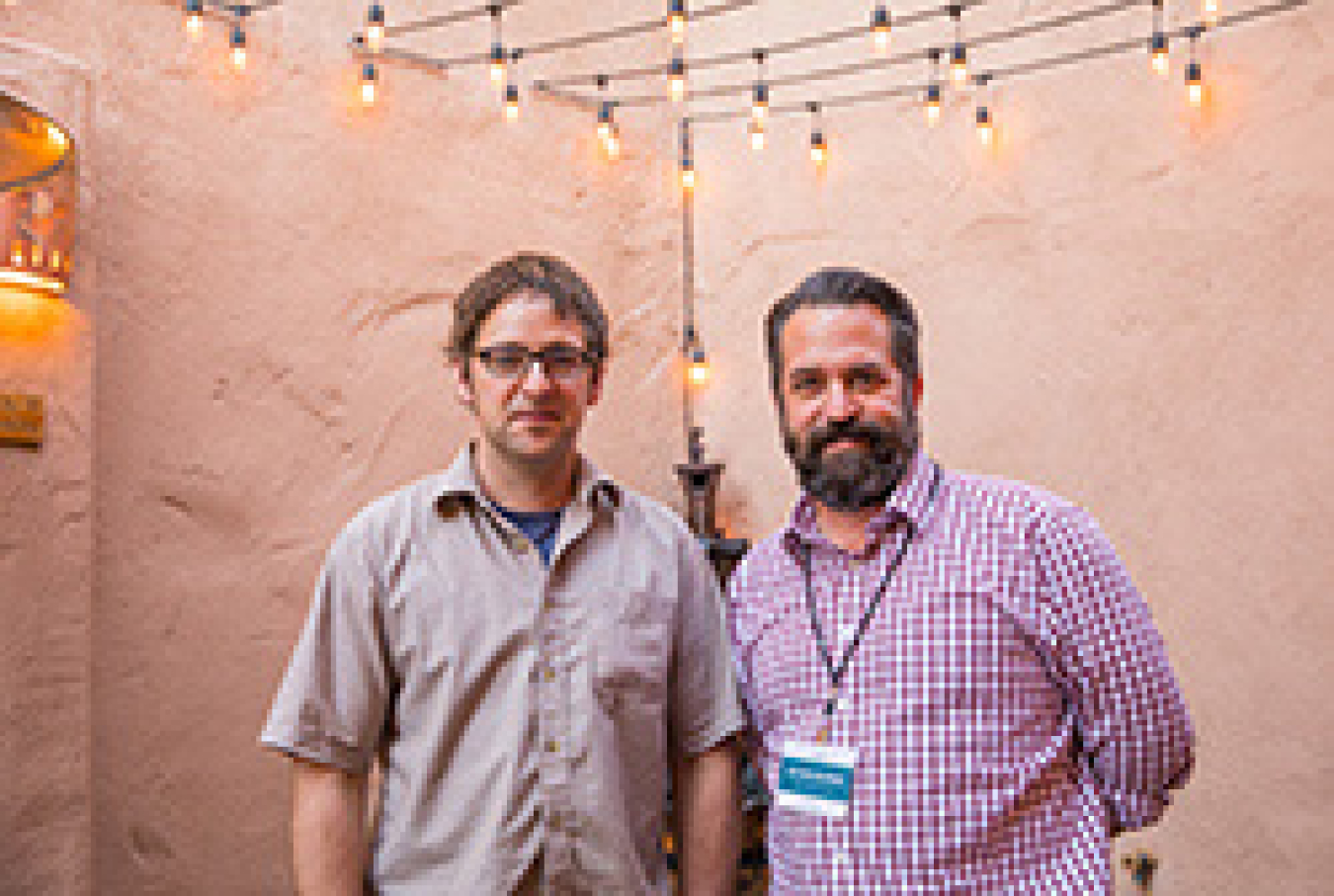The FY24 Spring Energy I-Corps program offered additional funding tracks beyond the historically-offered immersive training curriculum. Under Topic 1: Pipeline Development, DOE National Laboratories and DOE Plants and Sites propose projects aimed at increasing their researchers' participation in future training cohorts. Under Topic 3: Post Energy I-Corps, program alumni apply for additional assistance to aid their next step toward commercialization.
Find information about selected teams and technologies for Topic 2: Training Cohort.
Topic 1: Pipeline Development
Topic 1 invited proposals from DOE National Laboratories, and DOE Plants and Sites for programs and projects aimed at increasing participation in future Energy I-Corps training cohorts (Topic 2). Five projects from seven labs were selected:
Fermi National Accelerator Laboratory (FNAL) will conduct an entrepreneurial training program called the Fermilab Entrepreneurship and Commercialization Practicum. The two-month Practicum will include a team-based approach to learning about the commercialization process using lab technology, instruction from laboratory and guest speakers, and participation from Topic 2 alumni from FNAL and other DOE National Laboratories to promote interest in the future Topic 2 training cohorts.
Idaho National Laboratory is partnering with Thomas Jefferson National Accelerator Facility to deliver and administer the Energy I-Corps Pipeline Development Program, a six-week entrepreneurial training program offered to lab researchers. The program will offer 30 hours of training per researcher, which includes 15 hours of in-class presentations and training sessions and 15 hours towards researchers conducting stakeholder discovery interviews for their lab technology.
Los Alamos National Laboratory’s Feynman Center for Innovation (FCI) will execute a 2.5-day workshop in collaboration with Texas A&M University and host an Energy I-Corps Lite Program (EICL). The goals of the workshop and EICL are to create a structured and standardized approach to assess technologies with promising market opportunities, train researchers on foundational technology commercialization concept, and accelerate viable commercialization outcomes.
National Renewable Energy Laboratory (NREL) will implement an entrepreneurial training called EIC Sprint to a cohort of 10-15 NREL researchers. Participants will be matched with Topic 2 alumni to learn more about training cohort opportunities, tour local startups, and attend instructor office hours and workshops to learn about the commercialization process. Upon completion of EIC Sprint, participants will continue their work with a market research component so that they can start to gain an understanding of the market and industry applications for their technology.
Pacific Northwest National Laboratory (PNNL) and National Energy Technology Laboratory (NETL) will partner with a minority serving institution, Washington State University (WSU) Tri-Cities, to provide a short course open to both PNNL and NETL researchers who are teamed with students and/or community entrepreneurs. The teams will be introduced to lean launch startup principles and work together to broaden and diversify the perspectives for both the researchers, students, and entrepreneurs, all while networking to form teams for future Topic 2 applications.
The following video highlights the PNNL-WSU project: "Innovation Lab." Over five weeks, teams of PNNL researchers and WSU students developed value creation plans, conducted industry interviews, and explored market pathways for new technologies.
Topic 3: Post Energy I-Corps
Topic 3 aims to support Topic 2 graduates with a high likelihood of commercializing the technology they took through the program. The funds are intended to cover costs of the next actionable step in their commercialization journey and to help awardees reach their next source of more substantive funding.
Three teams from Argonne National Laboratory (ANL), National Renewable Energy Laboratory (NREL), and Sandia National Laboratories (SNL) were selected for this topic:

Team 70: Oleo Sponge, ANL
A graduate of EIC Cohort 6, Oleo Sponge is a technology for recovering oil and petroleum products from water that surpasses similar technologies currently on the market. Oleo Sponge aims to dramatically combat both catastrophic oil spills and chronic problems with contamination in harbors and ports around the world.
The Topic 3 project seeks to accelerate the commercialization of this technology through ecosystem engagement, prototype development in collaboration with an industrial manufacturing partner, and demonstrations in real-world environments using conditions specified by industry stakeholders.
The team previously participated through funding provided by ANL. For Topic 3, the team will be funded by OTT.

Team 80: RouteE, NREL
A graduate of EIC Cohort 8, the RouteE Bus Energy Analysis Tool (RouteE-BEAT) is a dashboard that shows the estimated energy consumption and basic charging demands required if a specific driving route were served by a battery electric bus. This tool aims to help public transit agencies optimize their fleet electrification strategy, ultimately supporting both green transportation and a critical mode of transportation often serving the most vulnerable populations.
The Topic 3 project will refine the existing RouteE-BEAT dashboard with industry feedback, complete pilot demonstrations of the refined dashboard with public transit agencies that have an interest in electrifying portions of their bus fleets, and develop a plan for full scale deployment.
The team previously participated through funding provided by DOE Vehicle Technologies Office (VTO). For Topic 3, the team will be funded by OTT and VTO.

Team 194: Electro3D, SNL
A graduate of EIC Cohort 16, Electro3D is an electrochemical 3D printing technology that enables high precision 3D printing at room temperature and pressure. Electro3D has the potential to produce custom, high-fidelity electronics both in small quantities and cost effectively with greener production methods.
To address requests from interested licensees, the Topic 3 project will enable Electro3D to advance its existing prototype and demonstrate its ability to produce printed circuit boards at industry standards.
The team previously participated through funding provided by National Nuclear Security Administration. For Topic 3, the team will be funded by OTT.

